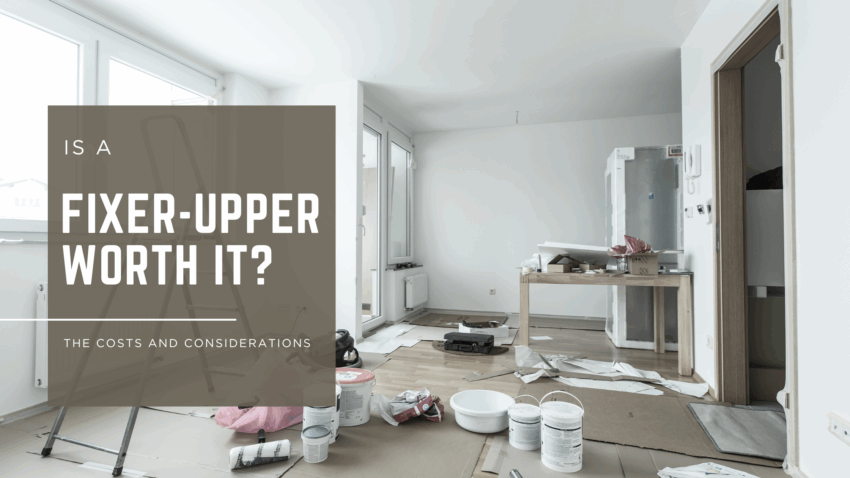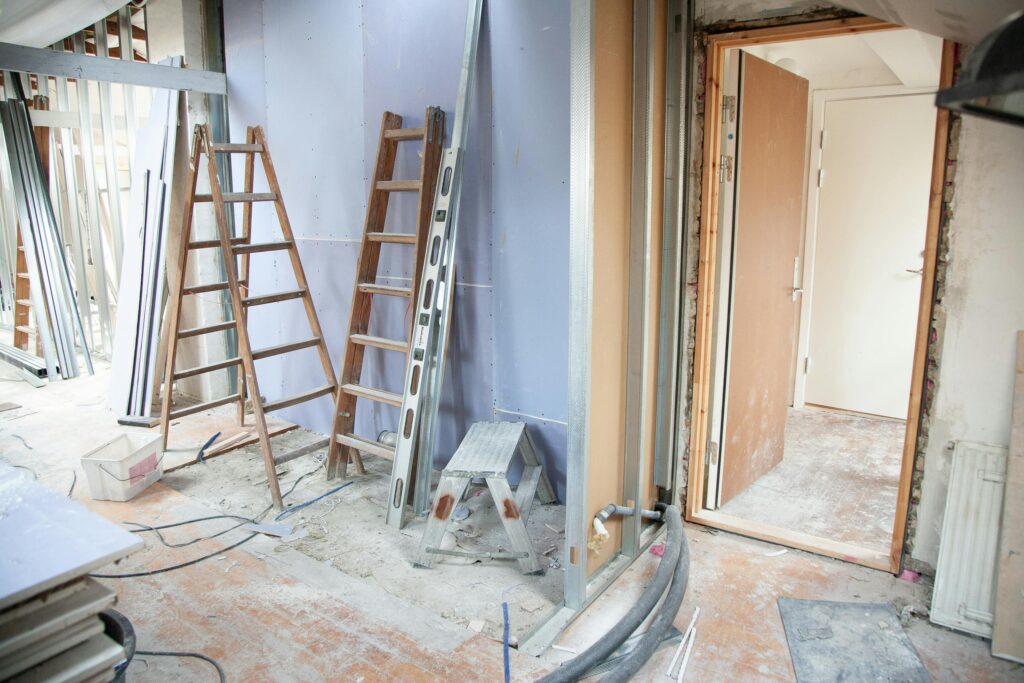
If you’ve spent any time scrolling through real estate listings or watching HGTV, you’ve probably wondered: Should I buy a fixer-upper? It’s tempting – lower price, creative freedom and the dream of turning nothing into something! Before you grab a sledgehammer and start quoting renovation costs, it’s important to ask: Is a Fixer-Upper worth it, especially for first-time buyers? Well, let’s break it down.
When a Fixer-Upper Might be Totally Worth It
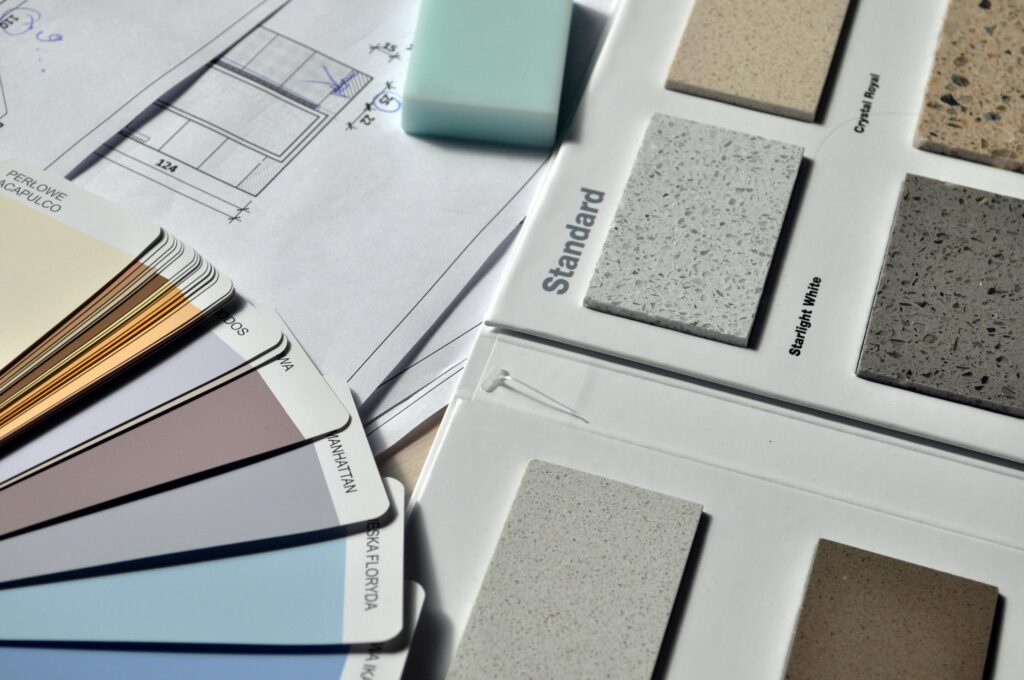
- You’re Handy (or Know Someone Who Is)
- If you’re comfortable with tools and know your way around YouTube tutorials – or you have reliable friends or family in the trades – you can save TONS of money on labor. Basic fixes like painting, flooring and tiling add up fast when you outsource, but DIYers can make serious progress on a budget.
- You Have a Realistic Renovation Budget
- Buying a fixer-upper doesn’t mean cheaper upfront costs – it also means budgeting for materials, contractors, permits and surprises. If you’ve got extra wiggle room built into your budget, you’re in a better position to handle the inevitable moments.
- The Bones Are Good
- Look past the shag carpet and outdated kitchen. If the home has solid structure – like a strong foundation, a healthy roof and updated plumbing and electrical – you’re likely dealing with mostly cosmetic updates. That’s the sweet spot.
- You’re Planning to Stay a While
- If you’re buying your “starter home” but plan to stay 5-7 years or more, the time and money you invest will likely pay off. You can take your time updating the space, live through the mess and see your home appreciate in value.
- It’s in the Right Location
- Buying the worst house on the best block? That’s a smart play. A fixer-upper in a desirable neighborhood can turn into a dream home (and a great investment) with the right upgrades.
When a Fixer-Upper Might NOT be the Right Move
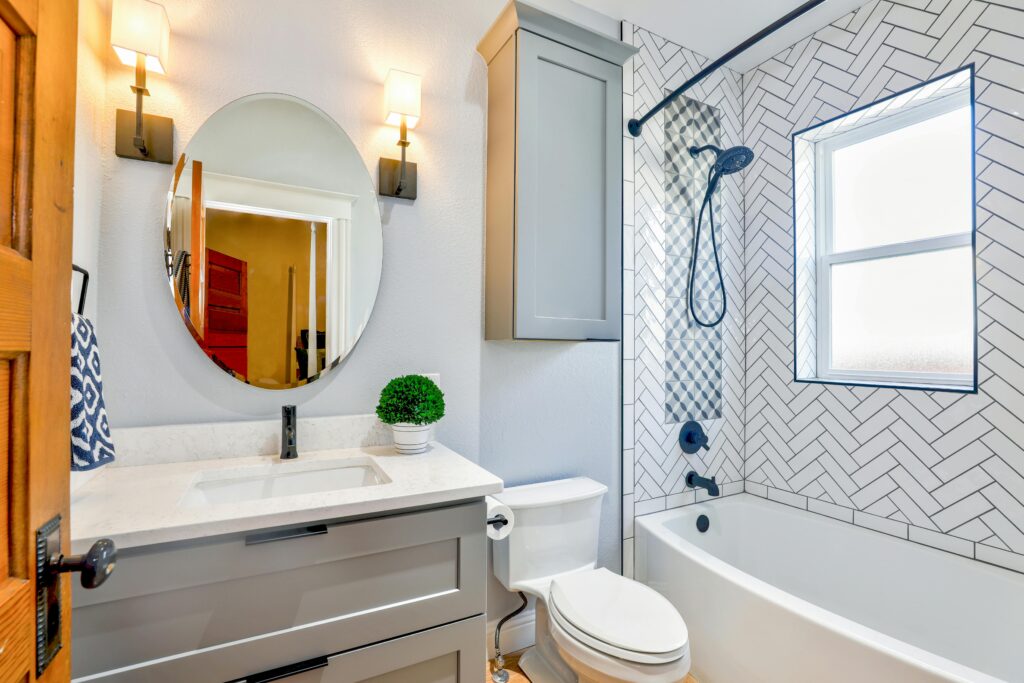
- You Need to Move In ASAP
- Renovations take time – and often way longer than expected. If your lease is ending soon or you’re on a tight timeline, a fixer-upper can quickly become a logistical nightmare.
- You’re Already Stretching Your Budget
- If the cost of the home already maxes out your budget, adding renovation expenses on top is risky. You don’t want to end up stretched thin by the mortgage and sinking deeper with renovation costs.
- Your Financing Doesn’t Cover Repairs
- Traditional mortgages usually require the home to be in livable condition. If your dream fixer-upper has major issues, you’ll need a special loan which comes with extra steps and requirements.
- You’re Not Up for the Stress
- Let’s be real: fixing up a house can be overwhelming. From surprise expenses to contractor delays, it does not just happen overnight. If the thought of constant mess and noise, project decisions and budget anxiety makes your head spin, it might not be the right fit.
A Quick Cost Comparison
Let’s say:
- A move-in ready home in your desired area costs $350,000
- A fixer-upper nearby is listed at $290,000
- Estimated renovation costs is $40,000
You’re all in at $330,000 – which sounds like a deal. But if the home could be worth $370,000-$400,000 post-reno, you’ve gained instant equity. Just remember, renovations rarely go exactly as planned, so leave room for surprises.
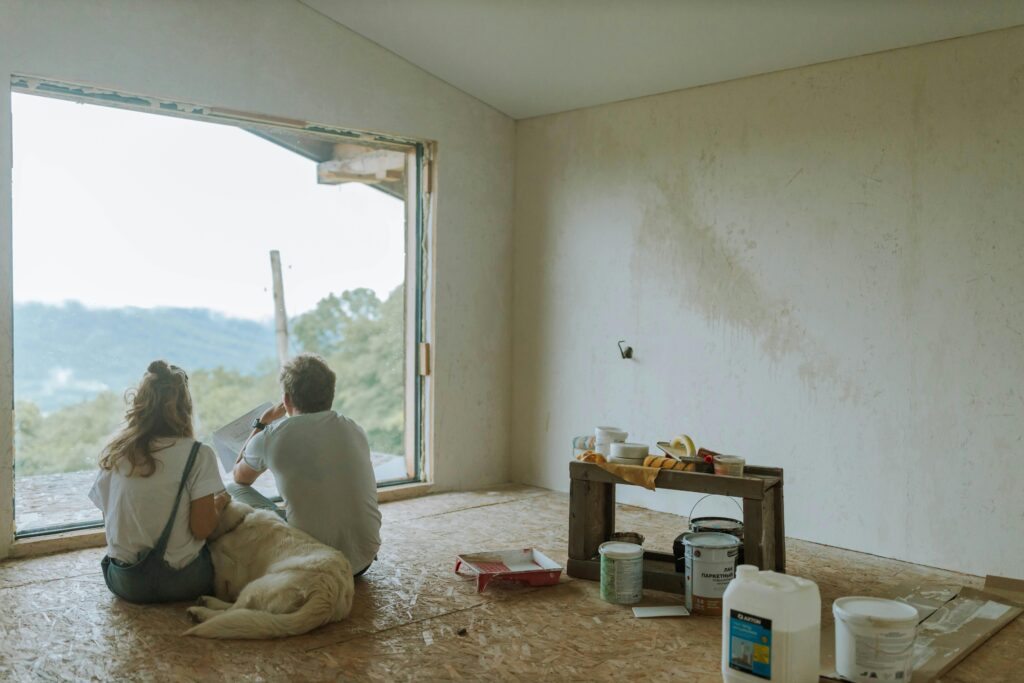
Final Thoughts: Is It Worth It?
Buying a fixer-upper can be a great move if:
- You understand the time, cost and energy involved
- You’ve got the right team (or skills) behind you
- You’re in it for the long game
But if you need something turnkey, stress-free and ready to go? That’s okay too. There’s no shame in choosing peace of mind over plaster dust.
Bottom Line: Is a fixer-upper worth it? Well, it is only “worth it” if it aligns with your lifestyle, budget and goals. Don’t buy into the hype – buy what’s right for you.
Follow Along on my Journey!
Want more tips and tricks about purchasing your first home? Are you curious about the homebuying process in general? Check out my page and follow me on Instagram for updates on posts and more advice! Click the links below for more!!
